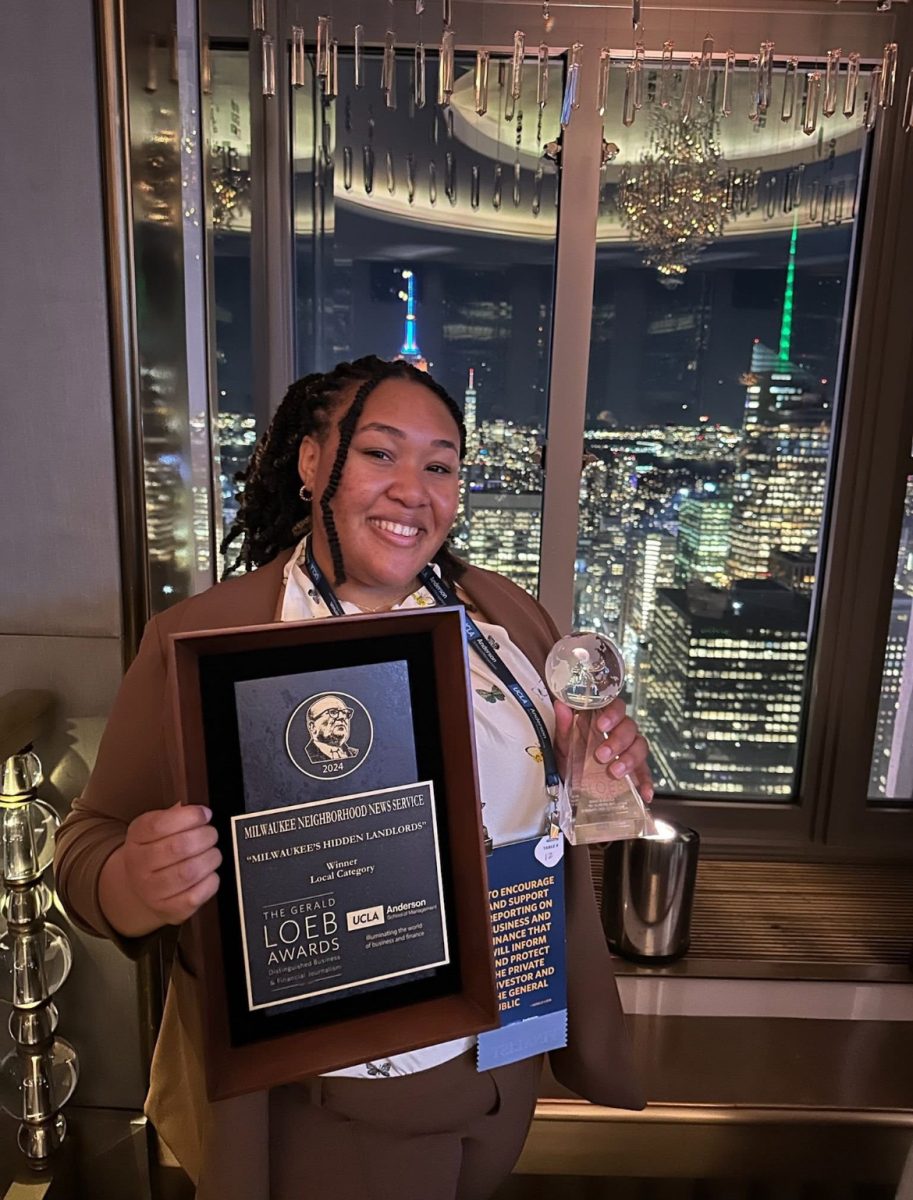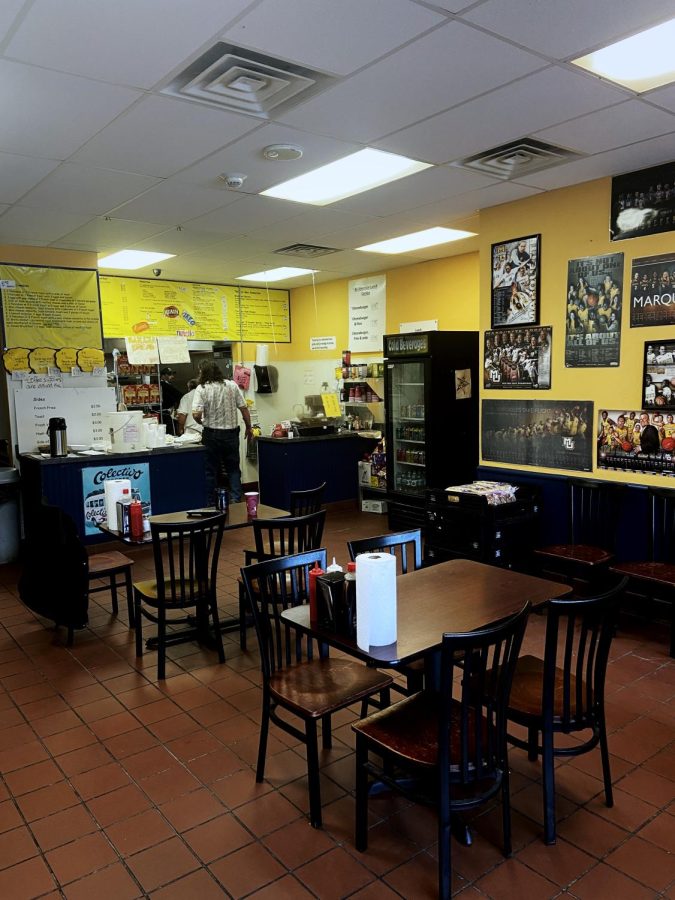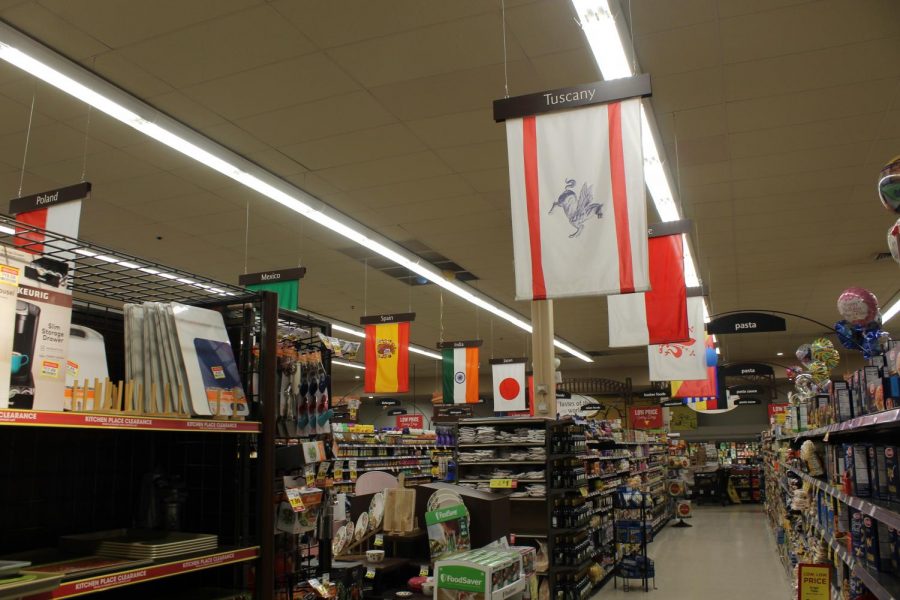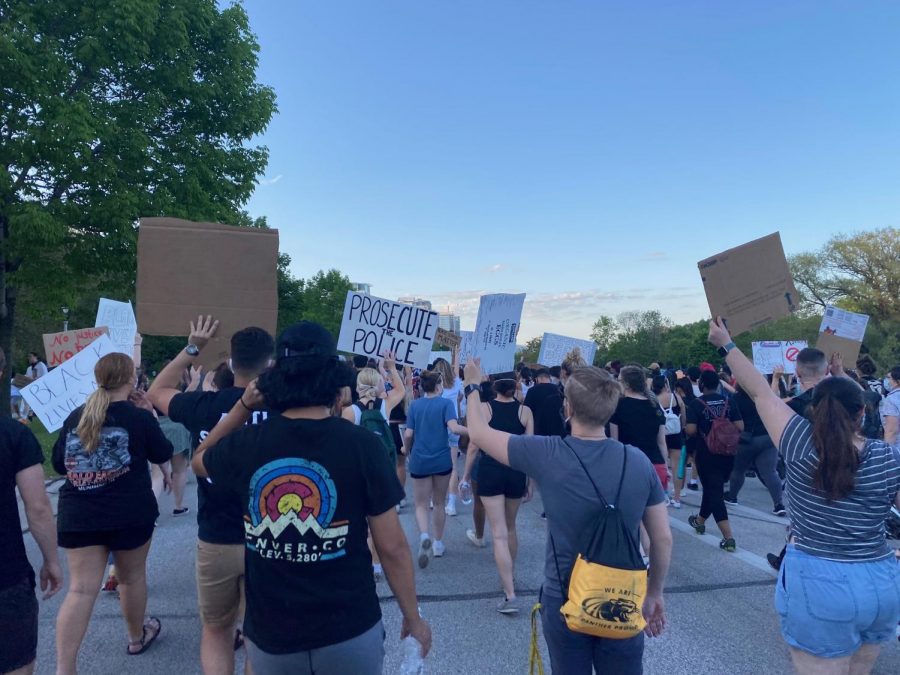
They say you are what you eat. But what if that delicious late-night burger was prepared with improperly cleaned utensils? Or on a surface used for both raw and ready-to-eat food? What if the cook had a cold?
Improper sanitation and cross-contamination can lead to bacteria that cause food-borne illnesses.
Things like that don’t cross most people’s minds when they go out to eat. That’s why the Milwaukee Health Department inspects restaurants at least one to three times per year (depending on their classification) to ensure food preparation practices are up to code.
At any given inspection, any restaurant — including those on and near campus — could find itself with a citation.
Campus health code violations
According to a database of health code violations compiled by the Milwaukee Journal Sentinel, several campus-area restaurants and university facilities have received critical violations from the health department over the past year. Critical violations refer to anything that could lead to a foodborne illness.
In March, The Broken Yolk received six violations for an improperly cleaned ice bin, a non-commercial slow cooker being used in the cooking area, improper food storage and improper sanitizing practices. Open Pantry received four violations in January for improper storage of utensils, dirty dishes being kept in a prep sink and chemicals being stored above a sink used for water. Marquette Gyros received a citation in April because employees were not wearing gloves when they prepared food. Sal’s Pizza received two citations for a dirty meat slicer and a cooler that was too warm.
At The Broken Yolk, owner Caroline Gatto said all violations were fixed in a matter of days.
Several hall stores in the residence halls received violations in September. The hall stores in O’Donnell Hall, Schroeder Hall, McCormick Hall, Straz Tower Hall and Mashuda Hall were given citations for not having the correct sanitizer on hand. The Mashuda hall store also received citations for a leaky sink and a refrigerator that wasn’t cold enough
Straz Tower Dining Hall Supervisor Michael White said the hall received no citations during their last inspection in October.
“We just clean up,” he said. “We keep a clean kitchen and a clean dining room.”
City-wide scope
According to Paul Biedrzycki, division director of disease control and environmental health for the Milwaukee Health Department, violations like those around campus can be fixed very quickly in most cases. But in some cases, Biedrzycki said a restaurant is asked to close until its problems are fixed.
And while it may seem like campus restaurants have had a lot of violations, they’re nowhere near the worst in the city.
In October, El Rey Market on Milwaukee’s south side received 10 critical violations in both the grocery and restaurant portions of the store. Unclean equipment, no hot water for hand washing, dates not marked on food more than a day old and several instances of cross-contamination were among the violations.
But even violations don’t seem to deter students from going to campus eateries.
Dan O’Meara, a junior in the College of Arts & Sciences, said he would probably still go to his favorite campus restaurant even if he knew there were violations.
“I guess it doesn’t really occur to me,” O’Meara said. “I have a stomach of steel.”
O’Meara used to work at a Dairy Queen, where he said the health code violations they received were “technicalities.”
“It wasn’t a big deal,” he said. “You fix it and (the inspectors) come back.”
Inspection policy and classification
Any retail establishment that serves food is required to have an annual license from the City of Milwaukee, Biedrzycki said. There are three categories of food service licenses — simple, moderate and complex.
Simple can refer to a store that sells prepackaged or ready-to-eat foods. Moderate refers to any establishment that offers limited food preparation. A complex establishment would be any store where food is cooked, Biedrzycki said. Around Marquette, Walgreens would be simple, a hall store would be moderate and Marquette Gyros would be complex.
Restaurants with complex licenses are inspected three times each year by the health department, while moderate and simple licenses require two and one inspections per year, respectively.
“The purpose (of inspections) is to reduce or minimize the potential for illness or injury associated with citizens using that facility,” Biedrzycki said. “Our purpose is to ensure the citizens are safe.”
The inspections can occur at any time — the health department doesn’t make appointments except for certain situations, he said.
“It’s very important that they don’t know when we’re coming,” he said. “Under special circumstances, like an outbreak investigation, we might make appointments.”
In addition to required annual inspections, Biedrzycki said the health department can inspect a facility if it receives complaints (usually about pest or illness problems) or if it needs to re-inspect following an inspection where code violations were found.
Gatto said inspectors “never come at a good time,” usually during or just after a busy mealtime.
“I’m sure they plan it that way,” she said, noting that inspections are just an everyday part of owning a restaurant.
Efraim Emmanzi, owner of Sal’s Pizza, had similar feelings about the random inspections. He said the inspectors typically do their job while the employees continue to do theirs.
“They don’t bother us,” he said. “They can come any time.”
‘What goes on in the kitchen’
If an inspector finds code violations in a restaurant during an inspection, he or she issues a citation. The restaurant is then required to fix the problem and submit to re-inspection. Re-inspections are also unannounced, but occur within a few weeks of a citation being issued.
Biedrzycki said there are two types of violations — critical violations and good retail practice violations.
Biedrzycki said the most common violations he sees are outbreak investigations, businesses where illnesses have been reported, sick employees handling food, cross-contamination of food (where raw and ready-to-eat food are prepared on the same surface) and improper cooking or refrigeration temperatures.
But it can be easy to overlook a health code and get a citation.
Gatto said The Broken Yolk has had citations in the past, but they were minor. She used an example of a pot sitting face up on the counter — where it could get dirty — when it should have been face down.
“There’s nothing you can do at the time to fix it,” she said. “(The inspectors) have to come back.”
Good retail practice violations refer to the overall appearance and cleanliness of an establishment.
“Nobody wants to eat in a dirty diner, but it’s mostly what goes on in the kitchen that’s going to cause foodborne illness,” Biedrzycki said.
A more transparent system
In the future, Biedrzycki said he hopes Milwaukee can establish a rating system for restaurants based on the health department’s inspections. He said the system would be similar to the letter grades restaurants in California are required to post.
“We want to make sure it’s fair and equitable,” he said. “We’re trying to make this more transparent to the public.”
Biedrzycki said he thinks the rating system would provide a good “disincentive” for food preparers to be out of code compliance.
Emmanzi said he wouldn’t be in favor of a grading system because getting a poor grade for small violations could take business away.
Gatto, on the other hand, said she wouldn’t mind it.
“I don’t think we’d have a problem with it,” she said. “It’s embarrassing to people that fail, but when you have nothing to hide, what’s the big deal?”









